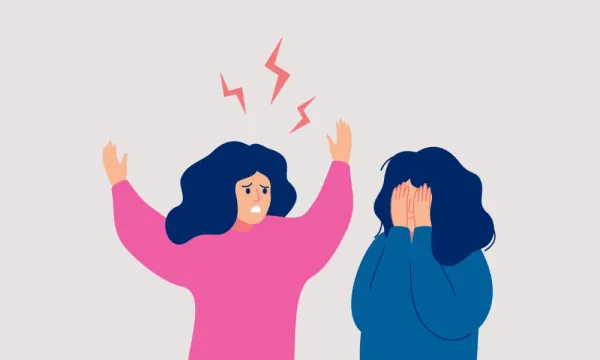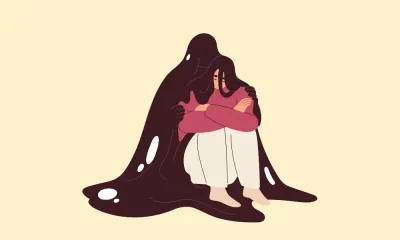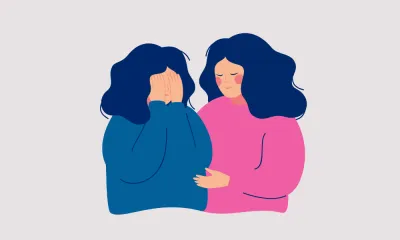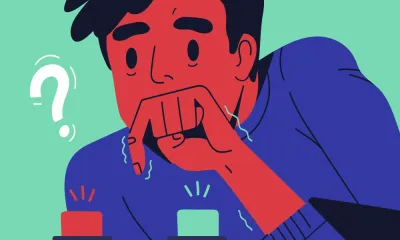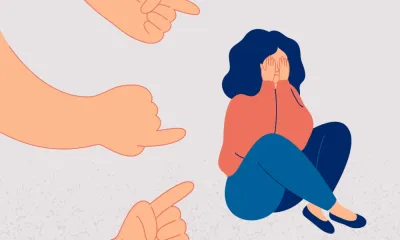We all have certain people we consider to be our closest friends. Most of the time, we select these friends because we share common interests, provide each other with emotional support when we're having a hard time, and enjoy spending quality time together.
But what if your best friend is not always the nicest person to you? Well, depending on the specifics of your situation, you might be dealing with a toxic person or a bad friend.
Things to know
- A toxic friendship is where mutual respect and support is lacking, often making one feel negatively impacted in terms of self-esteem and personal well-being.
- Signs of a bad friend include gossiping and starting drama, using put-downs and criticism, lack of trust, using peer pressure, making everything about them, making you feel like you're walking on eggshells, jealousy of your achievements, and constant attempts to change you.
- A healthy friendship is one where mutual respect, support, and encouragement are present, and both individuals feel like they are able to be their best selves with each other.
Want to learn more? Let's dive into the following signs:
- They gossip and start drama.
- They use put-downs or constantly criticize you.
- You never feel like you can trust them.
- They frequently use peer pressure to influence you.
- They make everything about them.
- You feel like you’re walking on eggshells around them.
- They always seem jealous of your achievements.
- They constantly try to change you.
- You give way more than you receive.
What Is A Toxic Friendship?
In a healthy friendship, both people show mutual respect for one another and support each other no matter what. These true friends are usually our biggest cheerleaders and we feel more like family members than just friends.
We enjoy spending time with these people and feel like they help us be the best version of ourselves. A toxic friend, on the other hand, doesn't offer many of these things.

Their bad behavior and selfishness often make them seem unconcerned with you, and they may frequently make negative comments that impact your self-esteem. They may even get aggressive at times, use guilt to seek validation, or do any number of other behaviors that set off red flags in your head.
These issues aren't just isolated incidents when your friend is having a bad day — they happen all the time.
Signs Of A Bad Friend
As you can imagine, it's hard to sometimes distinguish between a slightly self-absorbed friend who means well and an unhealthy friendship. However, there are several red flags that can be a dead giveaway that you're in a toxic friendship.
Here are nine signs of a bad friend:
1. They gossip and start drama.
While we all like to gossip from time to time, constantly starting drama and spreading false rumors about people for your own amusement is toxic behavior that is often a sign of a bad friend.
They may talk badly about mutual friends, or pick a fight for what seems like a silly reason to everyone else. In some instances, they almost seem like a fake friend because they will appear sweet one minute, then talk about people behind their back the next.
2. They use put-downs or constantly criticize you.

In a healthy relationship, both people pick each other up and provide encouragement. When you're involved in an unhealthy friendship, though, chances are your friend frequently seeks out opportunities to make you feel bad about yourself instead.
They will take a positive conversation and find a way to turn it into a roasting, or they will remind you of all the ways in which you're a terrible friend who doesn't do enough for them (or anyone else).
This can take a serious toll on your self-esteem, and you may even start to internalize these negative opinions your friend shares, which will only make things worse.
3. You never feel like you can trust them.
Friends should be people we can trust and confide in. However, a toxic friend is usually not someone we can trust, at least not completely.
They may take your private information and share it with others, or they may use secrets you've shared with them against you at a later time as a source of emotional blackmail. Either way, the fact that you can't trust this person is a serious red flag of a bad friendship.
4. They frequently use peer pressure to influence you.

Peer pressure has no place in adult relationships, especially when it frequently pushes you to do things that go against your moral code or clash with your personal values.
They may influence you to break rules, engage in risky behavior, or even commit crimes. A real friend doesn't use guilt tactics, pressure, and nagging to get you to do something with them — remember that.
5. They make everything about them.
Toxic friendships often feel one-sided. So if you notice that your friend constantly talks about their life and rarely asks about yours, that may be a sign that there's an issue.
Even more so, though, bad friends will find ways to spin any situation to be about them. They may play the victim, or just find a way to make something happy in your life about them. Either way, it's not a good thing, and it definitely will take its toll on your mental health over time.
6. You feel like you’re walking on eggshells around them.
If you have to carefully choose your words when you talk to a friend, that's a definite red flag.
You shouldn't need to worry about when your friend is going to lash out, or carefully ask questions to feel out their mood before you share some good news with them.
You shouldn't fear negative interactions or fear starting a fight by sharing something about your day. That's not a healthy friendship at all.
7. They always seem jealous of your achievements.

In a true friendship, both people are willing to support each other and feel genuinely excited when one of you succeeds.
However, a toxic friend may appear jealous of anything from a new romantic relationship to a much-deserved promotion you received at your job.
They may even find a way to make you feel bad about your success or remind you that you don't deserve positive things in life, which may cause low self-esteem or crush your confidence.
8. They constantly try to change you.
While it's normal for your social circle to push you to challenge yourself or work hard, there's a huge difference between encouraging you and trying to change you into a completely different person.
In positive friendships, people accept each other as they are. But in a bad friendship, people will try to make you change for their own reasons, and they're usually selfish ones.

9. You give way more than you receive.
Healthy friendships feel equal, with give and take from both parties.
Unfortunately, in a toxic relationship, you often give more than you receive to the point that you feel drained. You may even feel like your friend is taking advantage of you without putting any effort into the friendship themselves.
You might feel like you're the better friend, yet you can't seem to let this person go. However, this type of relationship is exhausting, and it's not sustainable — period.
Breaking Ties With A Toxic Friend
Although you may deeply care about your friend or maintain that their toxic traits are merely part of an underlying mental illness, the fact of the matter is that a toxic friendship isn't healthy for either of you.
In many cases, keeping a toxic friend around can impact your own health and wellbeing, and it may push you towards self-neglect because you're trying so hard to keep your friend happy and keep the relationship alive.
Your friend may be capable of healing and change, but it's going to take time. Also, they may not be able to see their bad behavior at this moment, especially if you enable it. Therefore, the best thing you can do in this situation is to create space between you or break ties completely.

You don't owe anyone an explanation for ending an unhealthy friendship, not even yourself. You're allowed to prioritize your own needs and take care of yourself, even if it's hard and hurts the other person at first. Just remember, if you feel unhappy in the relationship, then chances are it isn't a healthy one.
Unfortunately, there aren't always ways to salvage this type of relationship, so you may have to go no contact with your toxic friend to really break free. You may even need to delete them from social media, spend less time in places you used to frequent together, and avoid situations that may put you in the same room with them.
Once you break ties with your toxic friend, you will be able to find ways to make new friends and start healthier relationships. This will not only help you feel less alone, but it will help you see how truly problematic your previous friendship really was. You'll also be able to move on and build new connections with better people.
Just remember that breaking ties with a toxic friend doesn't make you a bad person, it just makes you human. You deserve friends who build you up and care about you in the same way you do for them because that's what true friends do for each other.

